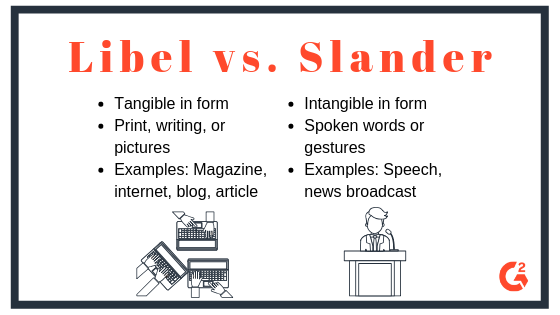
The Nuances of Libel and Slander Cases
In the age of instant communication and widespread information sharing, cases of libel and slander have become more prevalent and complex. These legal matters revolve around damaging false statements made against an individual or entity. Understanding the nuances of libel and slander is crucial in navigating the legal landscape.
Defining Libel and Slander
Libel and slander are forms of defamation, where false statements harm the reputation of a person or business. Libel typically involves written or published defamatory statements, while slander pertains to spoken defamatory remarks. Both forms can have significant legal implications, and understanding the distinctions is key in legal proceedings.
Elements of a Defamation Case
For a successful defamation case, certain elements must be established. These typically include proving that the statement was false, that it was communicated to a third party, and that it caused harm to the reputation of the plaintiff. Meeting these criteria is essential for building a strong case in libel and slander disputes.
Public Figures and Defamation
Defamation cases involving public figures, such as celebrities or public officials, often require additional considerations. Public figures must prove not only that the statement was false and harmful but also that it was made with actual malice—meaning with knowledge of its falsity or with reckless disregard for the truth.
Online Defamation and Social Media
The rise of social media has introduced new challenges in the realm of libel and slander cases. False statements spread rapidly online, amplifying the potential harm to a person’s reputation. Legal strategies for addressing online defamation require a nuanced understanding of internet laws and jurisdictional issues.
Legal Remedies for Libel and Slander
Individuals or entities who have been victims of libel or slander can pursue legal remedies to restore their damaged reputation. Remedies may include financial compensation for damages, injunctive relief to stop further publication of false statements, and retractions or apologies from the responsible parties.
Defenses Against Libel and Slander Claims
Defendants in libel and slander cases may employ various defenses to counter allegations. These defenses can include truth as a complete defense, privilege for certain statements made in specific contexts, or asserting that the statement was an opinion rather than a statement of fact.
Importance of Legal Counsel
Given the complexities involved in libel and slander cases, securing legal counsel is crucial for both plaintiffs and defendants. Legal professionals specializing in defamation law, such as those at Josslawlegal.my.id, can provide tailored advice and representation to navigate these intricate legal matters.
Mediation and Settlement
In some instances, libel and slander cases can be resolved through mediation or settlement negotiations. These alternative dispute resolution methods offer a more amicable and less adversarial approach to resolving disputes, providing parties with more control over the outcome.
Consultation for Libel and Slander Cases
For individuals or businesses entangled in libel and slander cases, seeking prompt legal consultation is imperative. The team at Josslawlegal.my.id specializes in defamation law, offering personalized insights and legal support to navigate the complexities of libel and slander disputes.
In the realm of libel and slander cases, legal strategies must adapt to the evolving landscape of communication. Whether facing false accusations or defending against defamation claims, the expertise of legal professionals is a valuable resource in safeguarding reputations and seeking just resolutions. For personalized insights and legal support in libel and slander cases, consider consulting with the experts at Josslawlegal.my.id.



